"Saudi Arabia Arks: Testing Microbial Symbiosis in the Red Sea"

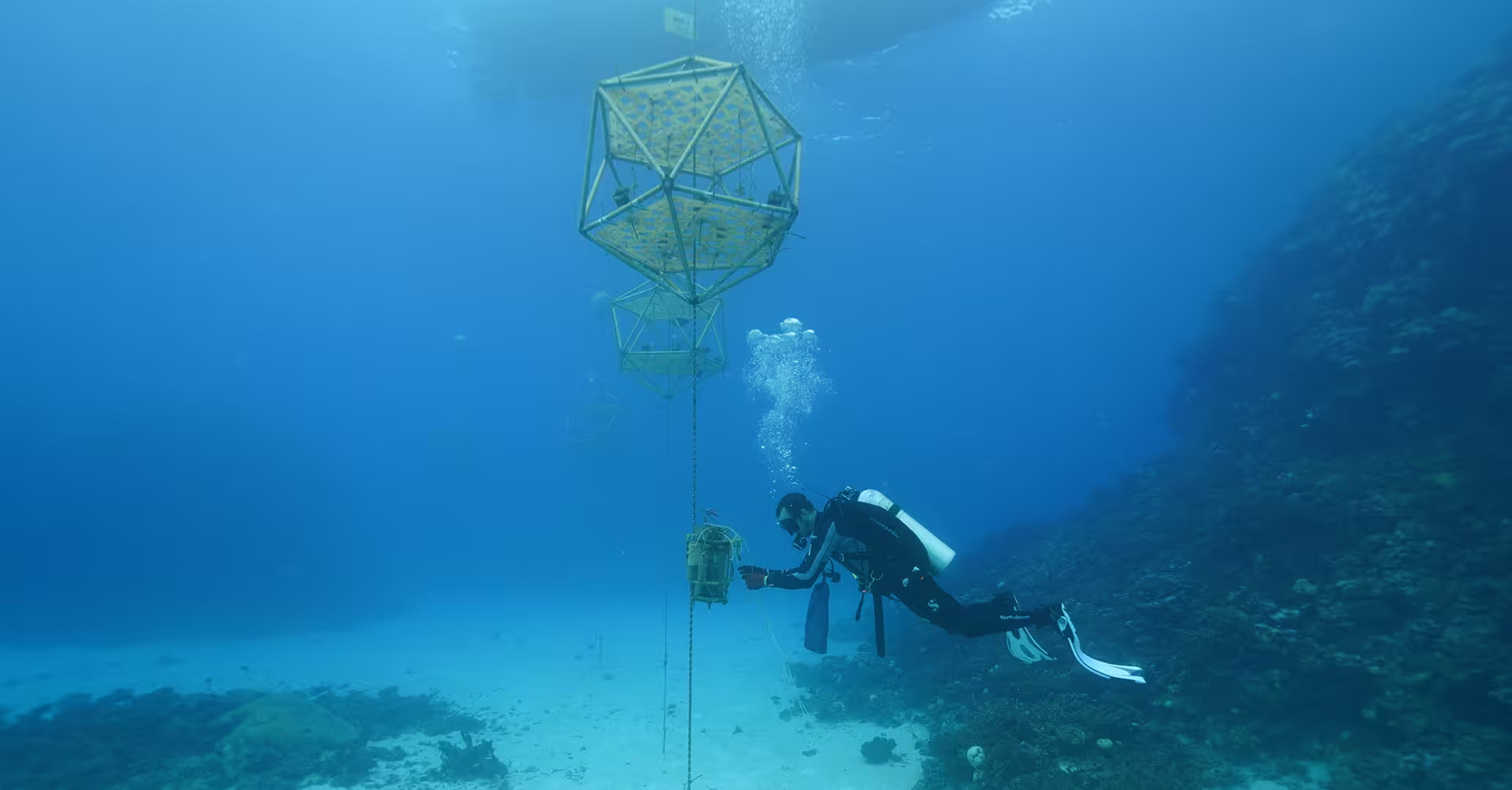
Why Saudi Arabia?
Located in Thuwal on the Red Sea coast, KAUST’s Coral Probiotic Village is one of the world’s most advanced coral reef research hubs. With coral reefs threatened by heat stress, microbial imbalance, and collapsing structure, this project explores a dual-intervention strategy.
- Environment: The Red Sea’s extreme heat and salinity create a natural stress-testing ground for corals under climate change.
- Application: This project combines midwater Ark engineering with coral probiotics to investigate whether built habitats and microbiome enhancement can work synergistically.
- Project goal: To understand whether physical habitat (Arks) and microbial restoration (BMCs) enhance coral resilience independently, additively, or antagonistically.
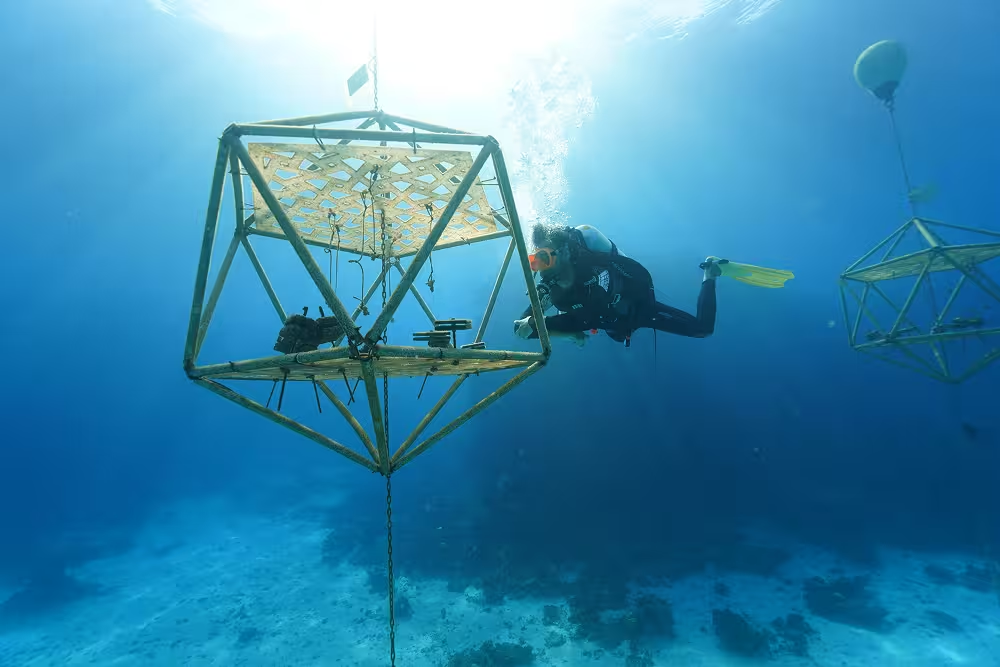
Deployment Strategy
Location: King Abdullah University of Science and Technology (KAUST), Thuwal, Saudi Arabia
Depth: 6-8 meters below surface, ~4 meters above benthos
Total Units: 9 Arks deployed
- 4 control Arks (no treatment)
- 5 treatment Arks (with probiotic BMCs)
.avif)
Scientific Monitoring
This project is a first-of-its-kind experiment combining engineered reef platforms with probiotic microbial enrichment in an in situ, replicated scientific framework.
Monitoring Parameters Include:
· Coral health (visual and physiological assessments)
· Coral growth (measured over time)
· Microbiome profiling (via metagenomics)
· Water chemistry (incl. bacteria:virus ratios)
· Associated fish community assessment
· Environmental and oceanographic conditions
Experimental Design:
Probiotic treatments are administered to selected Arks, allowing researchers to compare biological response against untreated controls across all monitored variables.
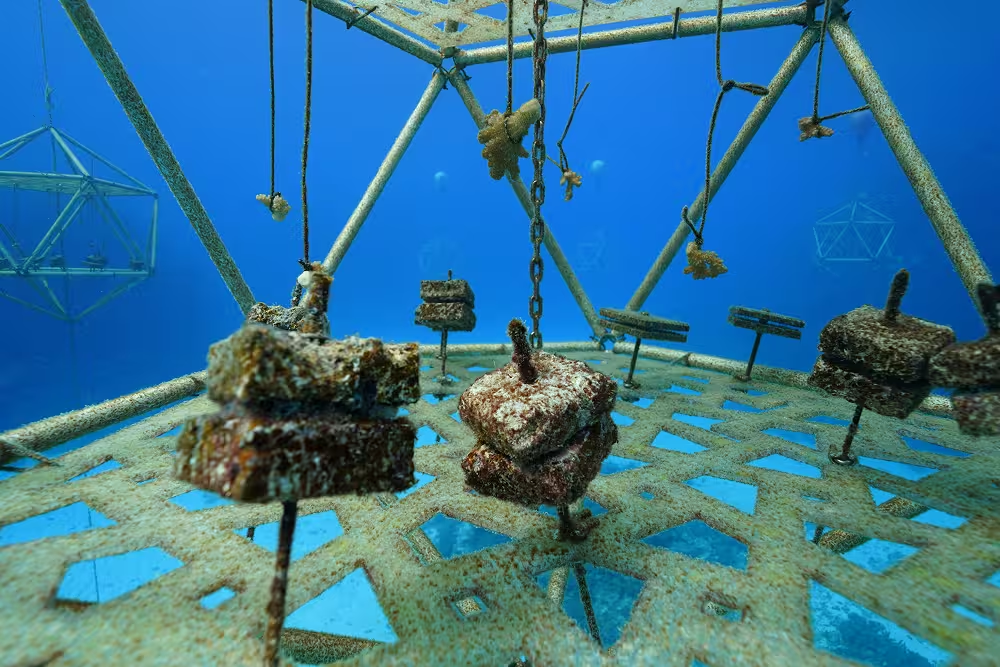
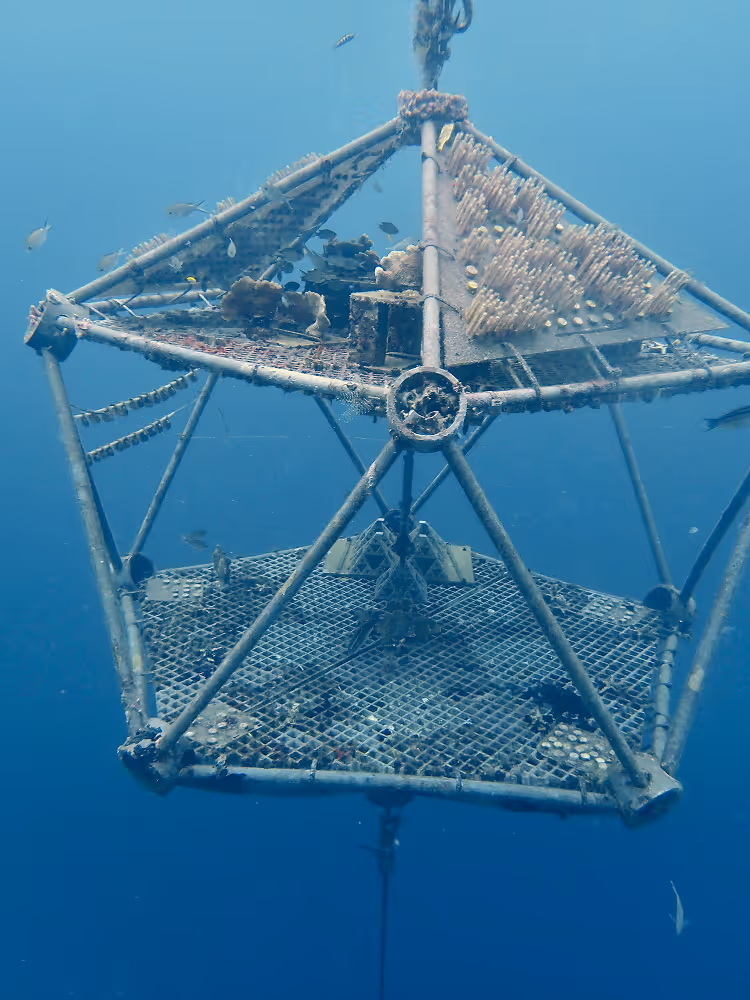

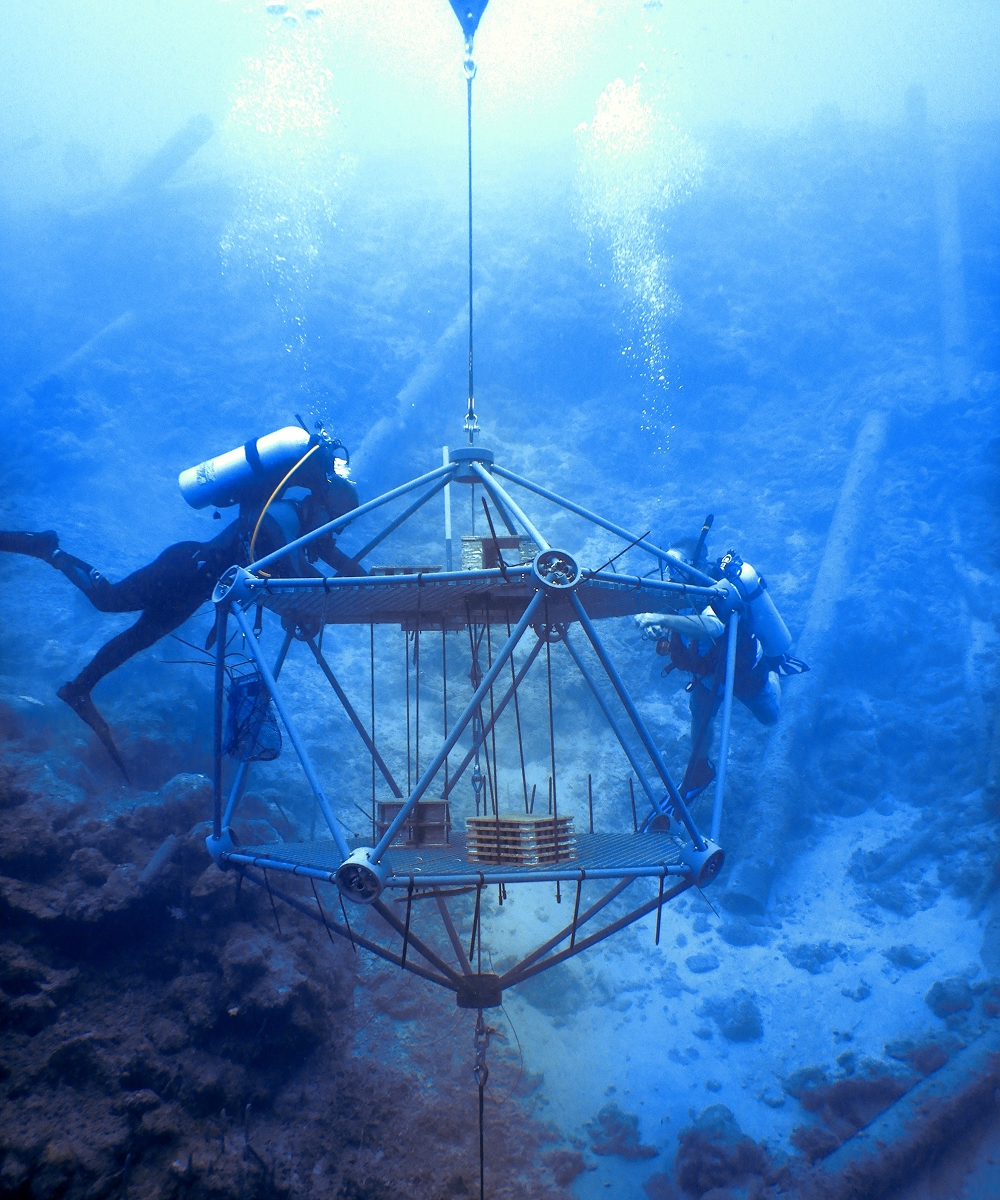

.avif)